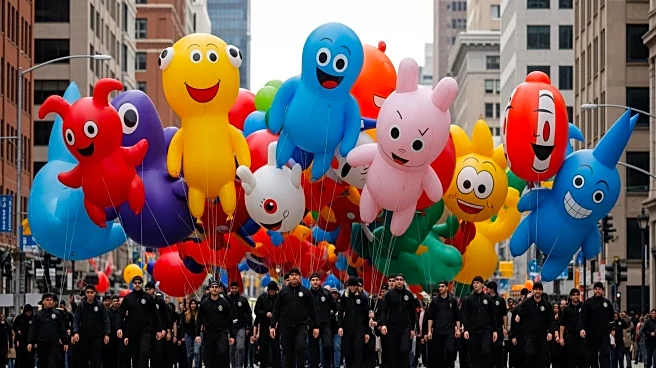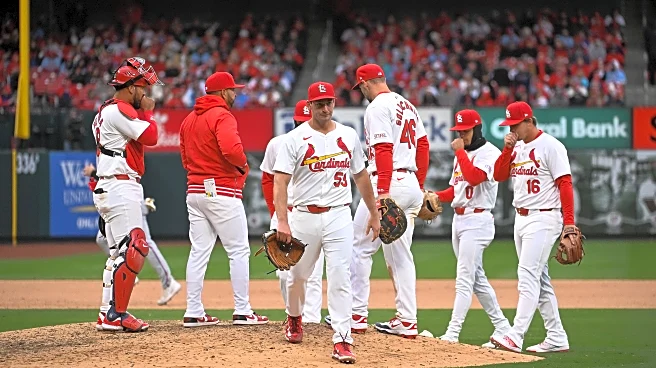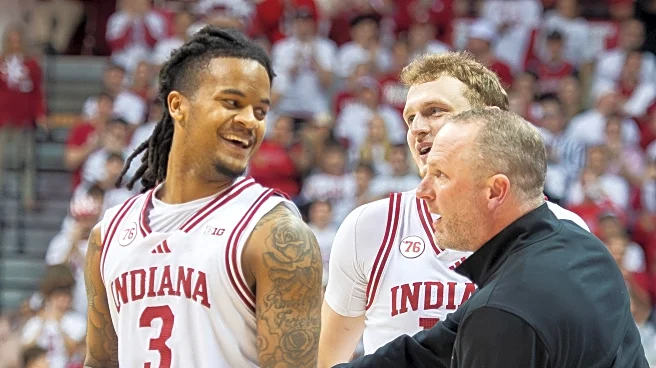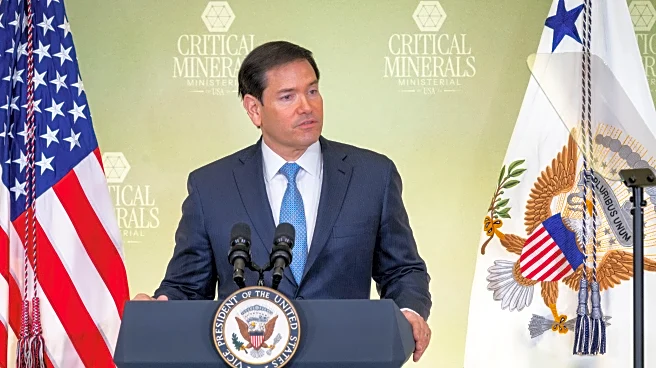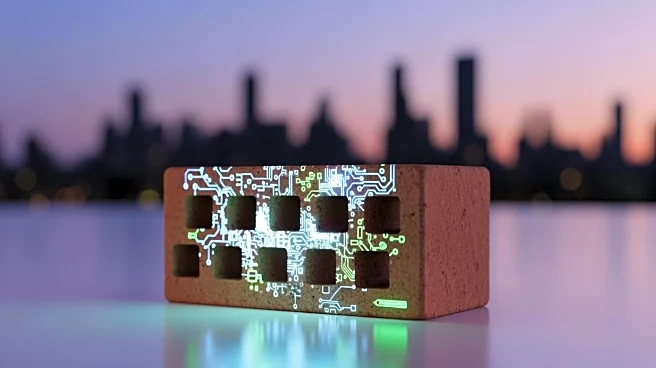What's Happening?
On October 18, a demonstration known as the No Kings march took place in Chicago's Grant Park. The protest, lasting two hours, was characterized by participants wearing inflatable costumes, such as sharks
and corn, to convey their messages. The event was held under the city's downtown skyscrapers on an overcast day. The protest aimed to challenge authoritarianism, with references to political figures like Senator Cory Booker. The use of inflatable costumes was inspired by similar protests against Immigration and Customs Enforcement in Portland, Oregon. The demonstration included a mix of participants, from those advocating for communism to others expressing their views through whimsical attire.
Why It's Important?
The No Kings protest in Chicago highlights a unique form of activism known as tactical frivolity, where humor and absurdity are used to convey serious political messages. This approach can draw attention to issues in a non-confrontational manner, potentially engaging a broader audience. The protest reflects ongoing tensions in U.S. politics, particularly in cities like Chicago that have been focal points of criticism from President Trump. By using humor, the protestors aim to undermine authoritarian narratives and promote democratic values. This method of protest could influence future demonstrations, encouraging creative and peaceful expressions of dissent.
What's Next?
The use of tactical frivolity in protests may continue to evolve, potentially influencing other movements across the U.S. As political tensions persist, activists might adopt similar strategies to engage the public and media. The effectiveness of these methods in achieving political change remains to be seen, but they could inspire new forms of civic engagement. Stakeholders, including political leaders and civil society groups, may need to consider how to respond to such unconventional protests, balancing the need for security with the right to free expression.
Beyond the Headlines
The No Kings protest raises questions about the role of humor in political activism. While it can make serious issues more accessible, it also risks trivializing them. The cultural impact of such protests could lead to a broader acceptance of diverse forms of expression in political discourse. Additionally, the protest highlights the importance of maintaining democratic norms in the face of authoritarian challenges, emphasizing the need for vigilance and creativity in defending civil liberties.
